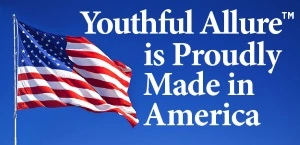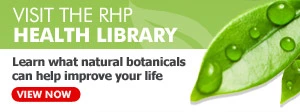[Printable Version of This Page]
TOPICAL RESVERATROL HELPS BLOCK SKIN DAMAGE
According to the World Cancer Report, skin cancer represents 30% of all newly diagnosed cancers in the world and UVA and UVB radiation from the sun is an established cause of 90% of skin cancers. Current options have proven inadequate for the management of skin cancer and other adverse effects of UVA and UVB radiation. Sunburn prevalence is increasing in the United States. A study by the Centers for Disease Control showed that sunburn prevalence increased in all adults from 31.8% in 1999 to 33.7% in 2004, with men having a higher prevalence of sunburn than women in all three years with a shocking increase of 7% from 2003 to 2004 among men. In 2004, a total of 20 states reported increases in sunburns among whites. Utah had the highest prevalence of sunburn (51.3%) and Arizona had the lowest (25.7%).1
An important study published in 2005 investigated the use of topical resveratrol to prevent skin cancer. Researchers designed an experiment that exposed hairless mice to UV radiation while they were supplemented with resveratrol. They specifically designed an experiment that would most closely duplicate the human situation. This experiment clearly demonstrated that topical application of resveratrol resulted in a highly significant inhibition of tumor incidence.2
In this experiment, resveratrol imparted equal if not better protection if it was applied after exposure to ultraviolet radiation. So if you get a sunburn you can come home and apply resveratrol to minimize the damage. Resveratrol did not act like a sunscreen but was absorbed into the skin and activated a protective signaling cascade inside the cell that prevented the chain of events that leads to cancer. Resveratrol inhibited the malignant conversion of premalignant conditions such as actinic keratoses. Resveratrol appears to work by a sequence of events that kills off premalignant and malignant cells controlled by the mitochondria. Once again, we are seeing that all roads for health lead to the mitochondria—even keeping your skin healthy.
References:
1 Sunburn prevalence among adults – United States, 1999, 2003, and 2004. MMWR. 2007;56(21):524-528. Centers for Disease Control and Prevention (CDC).
2 Aziz MH, Reagan-Shaw S, et al. Chemoprevention of skin cancer by grape constituent resveratrol; relevance to human disease? FASEB J. 2005 Jul;19(9):1193-5. Epub 2005 Apr 18.

![[Youthful Allure: Order Now]](https://youthfulallure.com/rhp/images/youthfulallure/design3/order-now-1.webp)


![[Renown Health Products: Proudly Providing Superior Grade Supplements Since 2002]](https://youthfulallure.com/rhp/images/rhpmain/design2/seal-285-240.webp)




